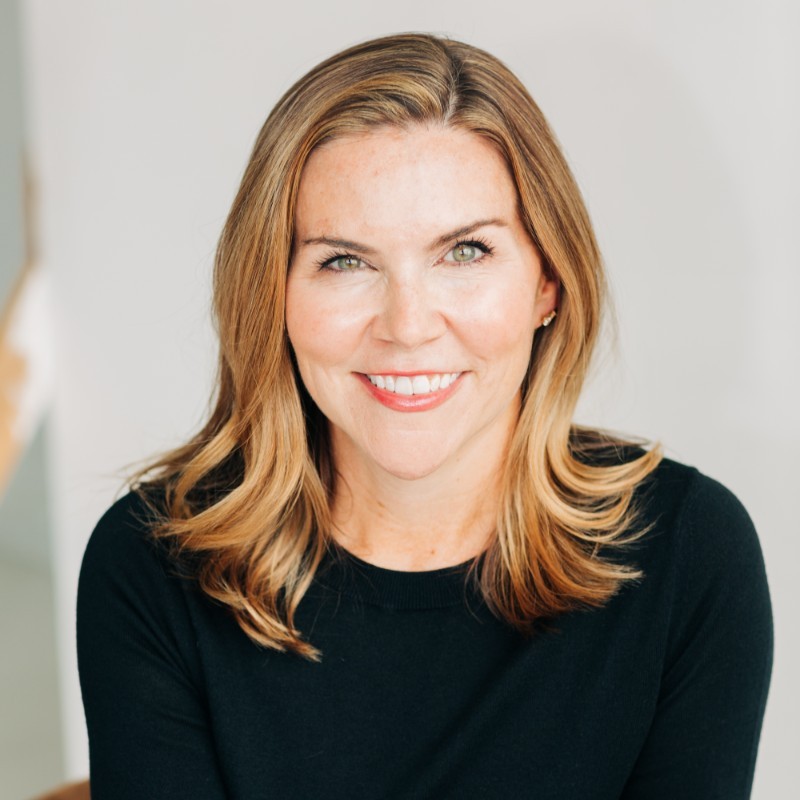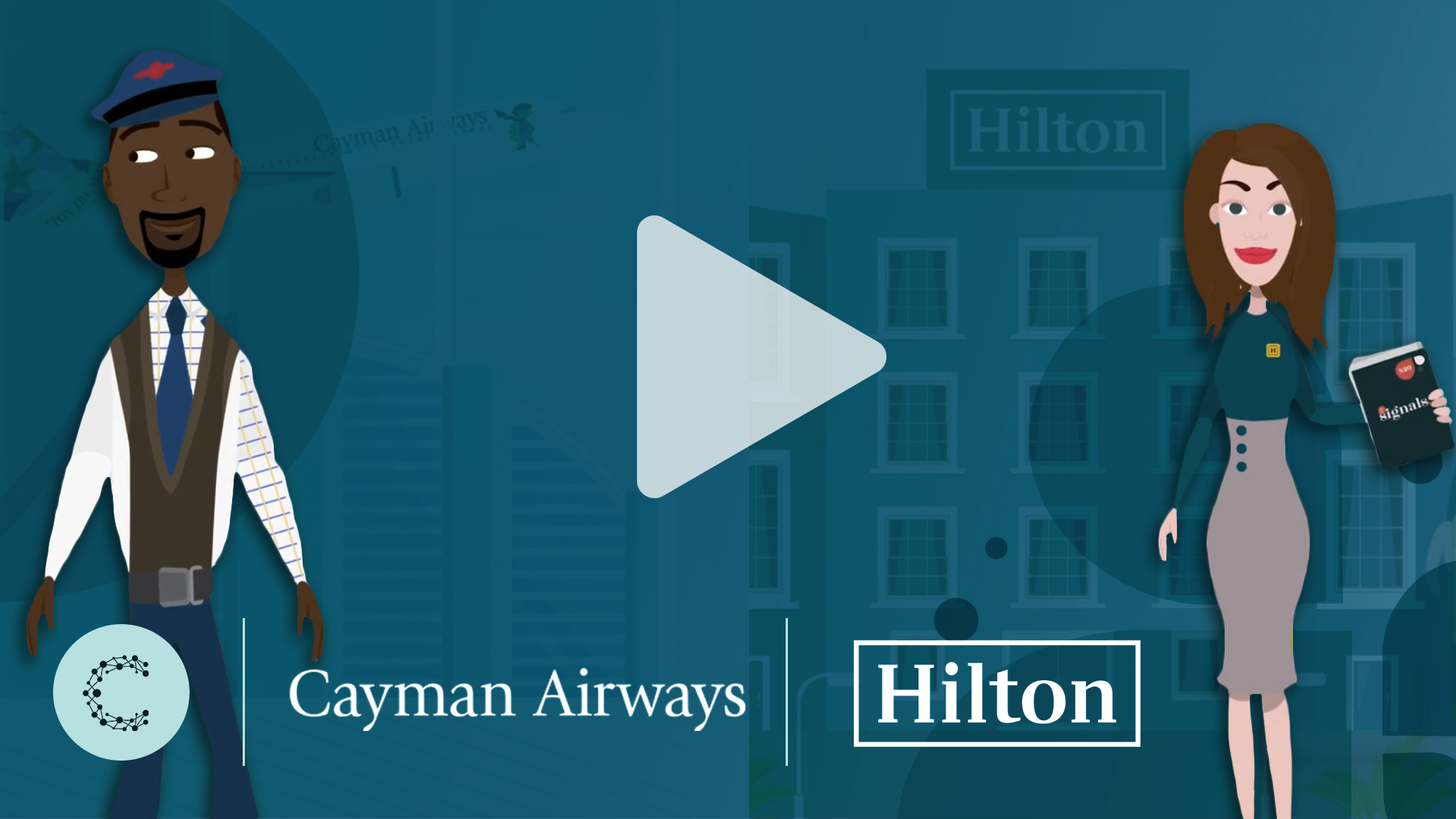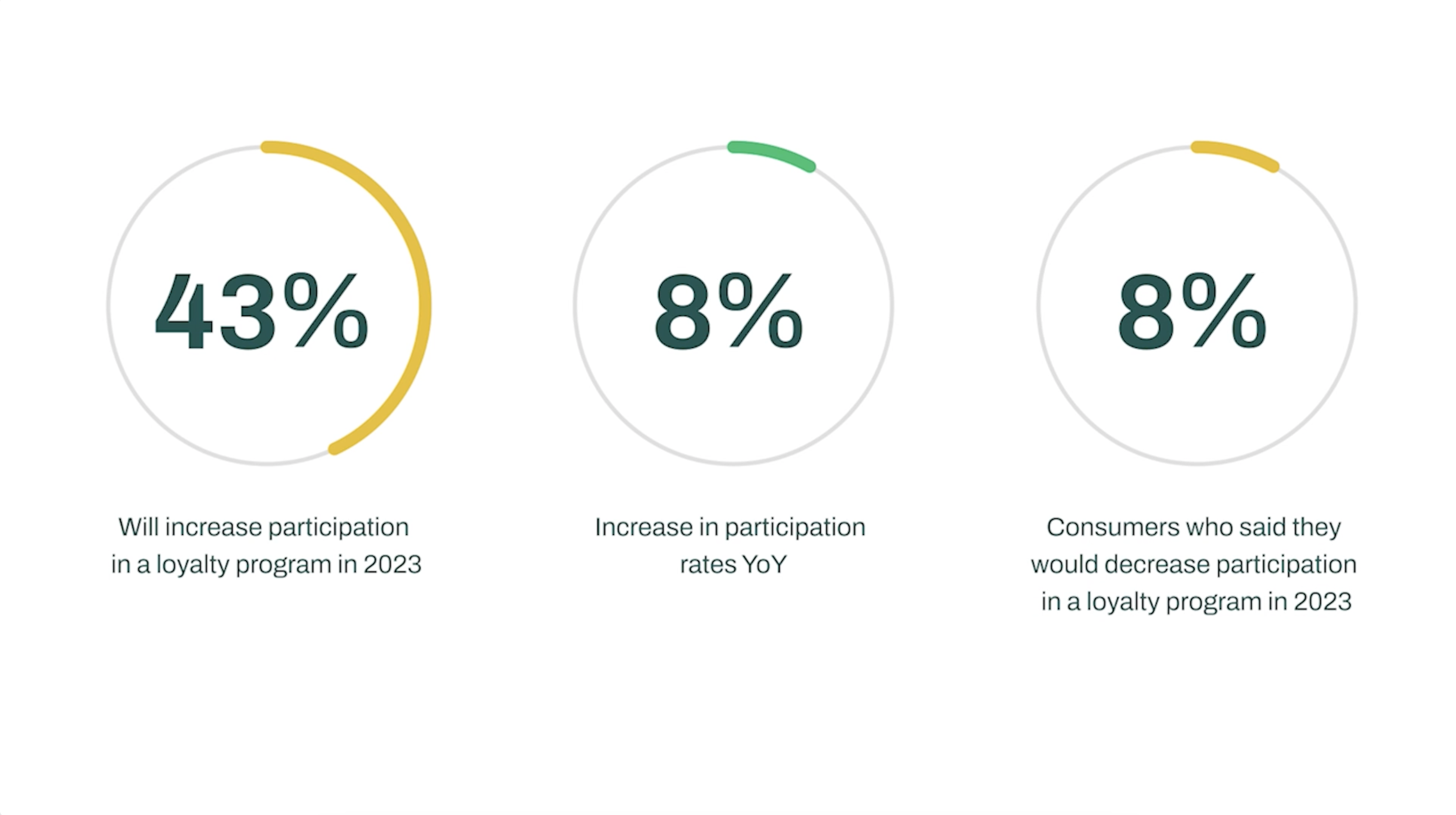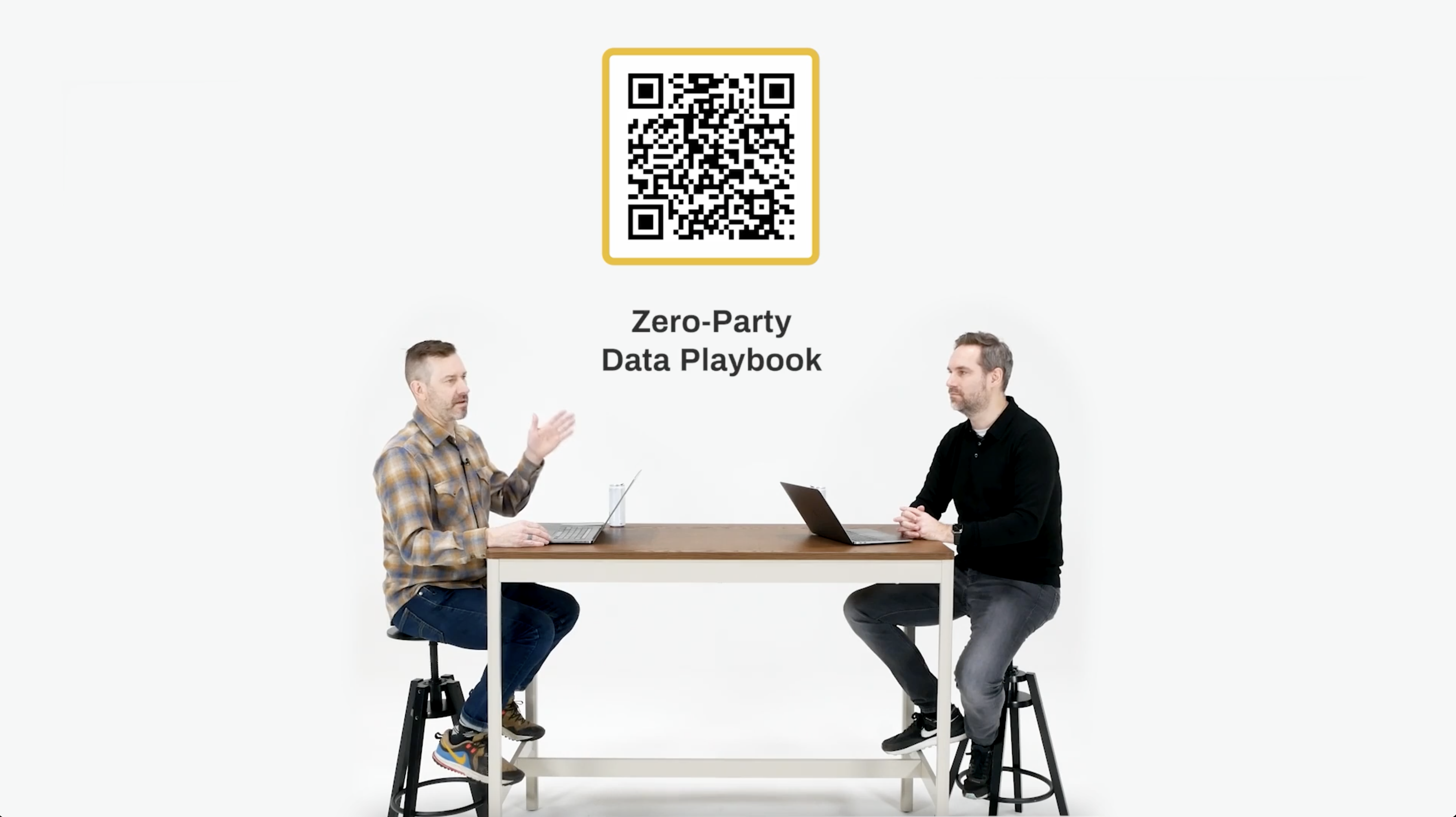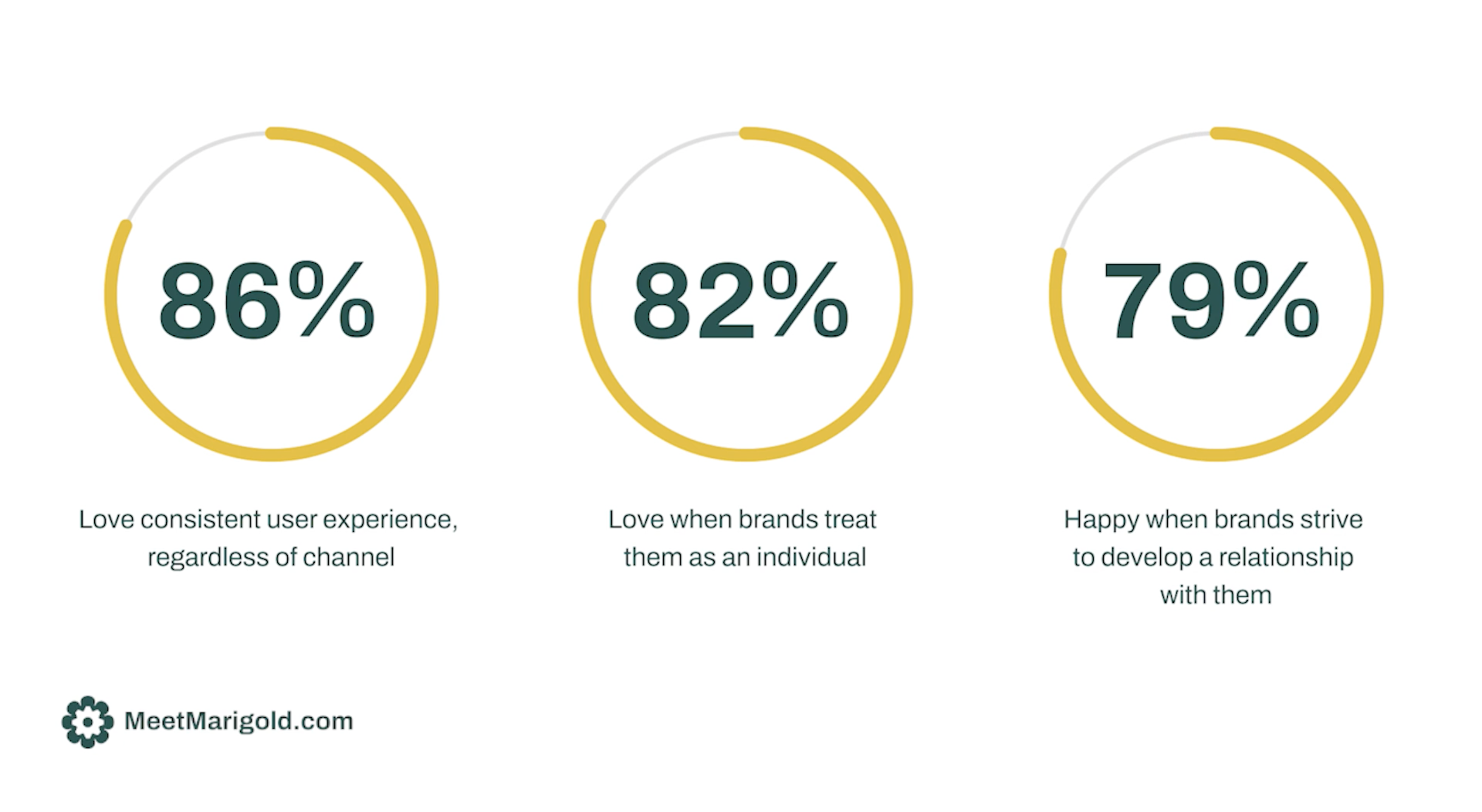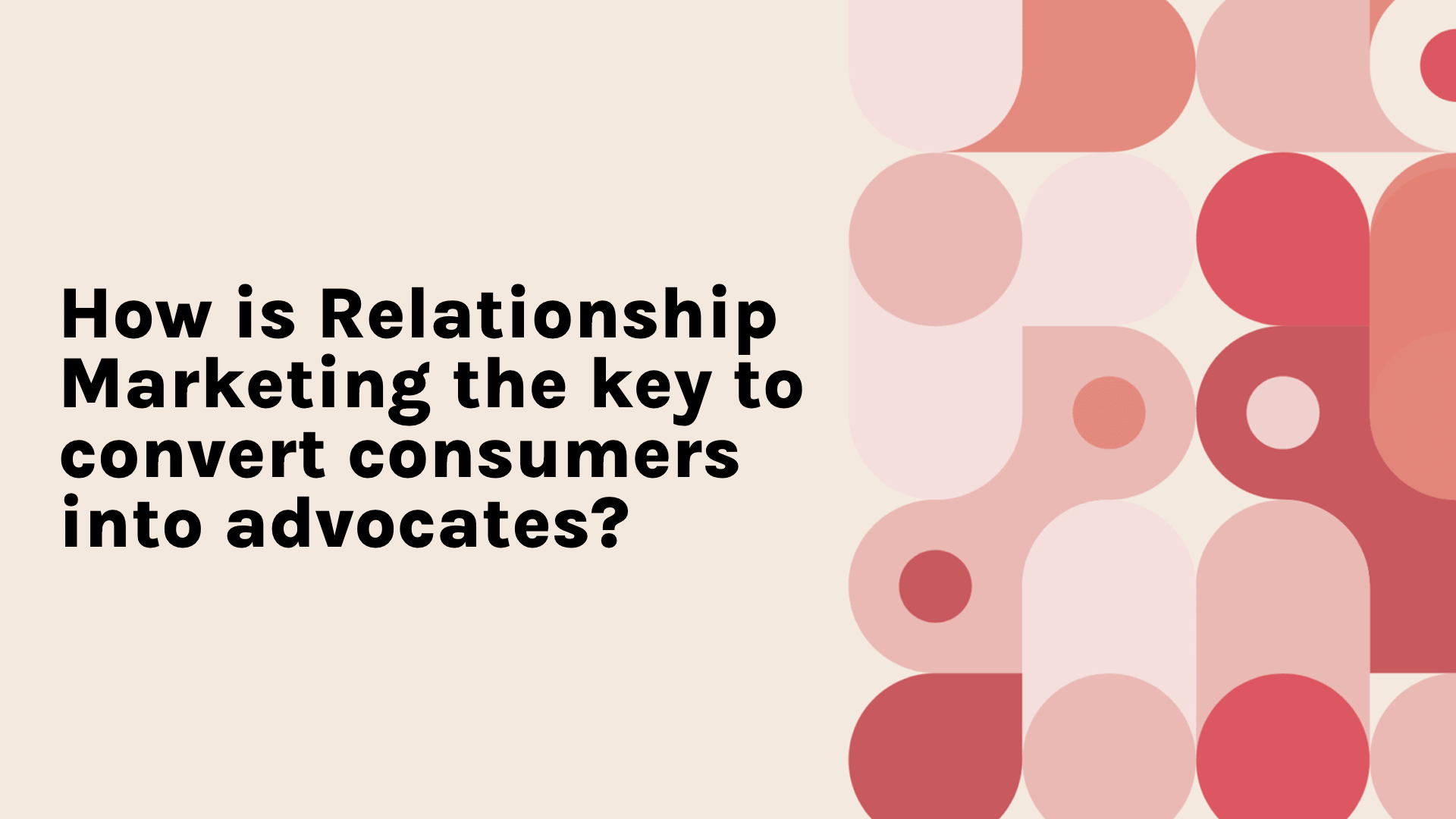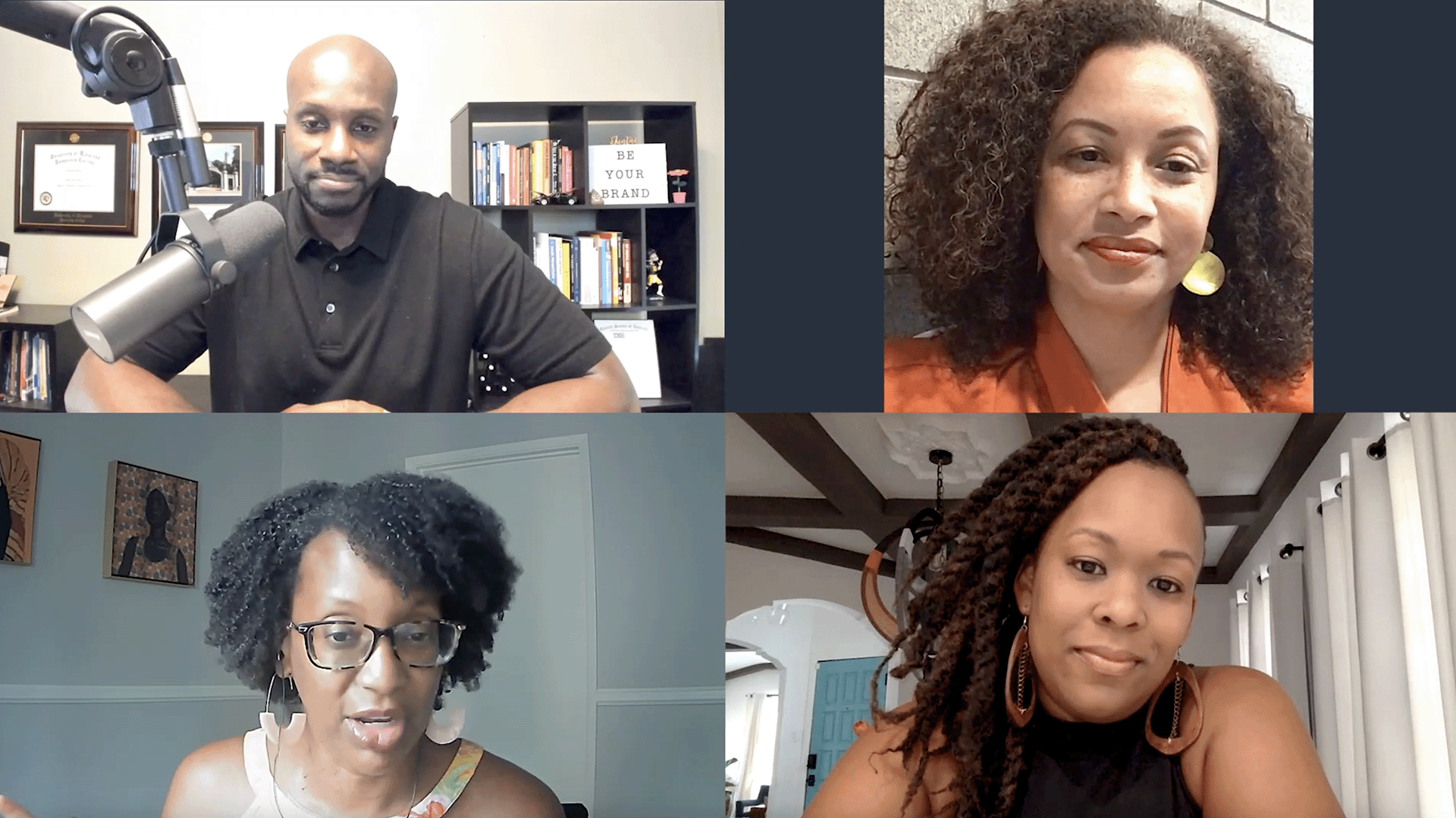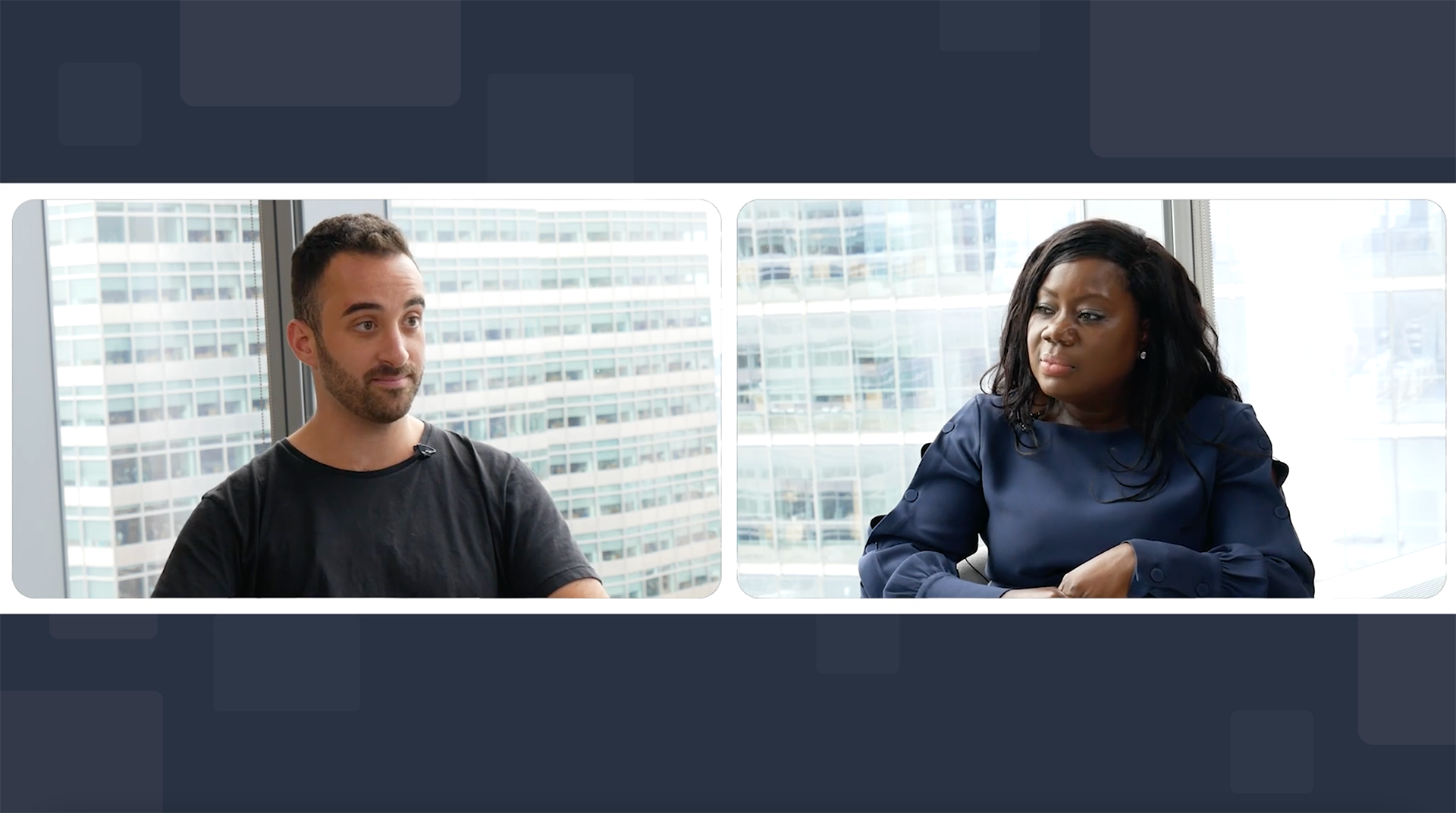How Marketers in Travel & Hospitality are Taking on an Unpredictable Year and Beyond
- 0.5
- 1
- 1.25
- 1.5
- 1.75
- 2
Julian: Kayla.
Kayla: Yes, Julien.
Julian: Two fish in a tank, one turns to the other and says, "How do you drive this thing?"
Kayla: That's actually kind of funny. Did you tell that because it reminds me of the current situation we're in. Just sitting in a cockpit, flying a plane with absolutely no skills or qualifications whatsoever.
Julian: Don't know if that's fair. We both have degrees.
Kayla: I meant in regard to flying this plane.
Julian: Oh, you mean you can't fly this aircraft?
Kayla: Surely you can't be serious right now.
Julian: Oh, I'm serious Kayla, and don't call me Shirley.
Kayla: Well, I'm sorry but it's still no. However I can introduce the six practitioner panel and our guests.
Julian: Okay, roger that Kayla. Go for it.
Kayla: Hello ladies and gentlemen. Thank you for flying with Cheetah Airways during our new channel loyalty week. We are about to depart on our practitioner panel, looking at how marketers in travel and hospitality are taking on an unpredictable year and beyond.
Julian: And this is your flight attendant speaking. As we get ready for take off, please keep all your limbs inside of the aircraft and keep your seatbelts fastened, as we may experience turbulence during the process of turning into our animated forms.
Kayla: Great. Well, let's get on with this panel then. Representing Hilton Hotels, and of course flying in business class, we have the brilliant Holly Moreland. Holly, could you introduce yourself and the work of your team?
Holly Moreland: Sure thing. Thanks for having me. I am Holly Moreland, I currently lead the email and mobile marketing team for Hilton. So we do all of the enterprise level email communications globally, including transactional. As well as the dynamic push notifications that come from our Hilton app. And the in app intersocial messages. Since we support 26 languages, we have over 6, 000 properties globally, we lean really heavily on technology to help us stay efficient and focused. And to actually accomplish everything that we do everyday. So it's also in our remit to always be looking at the platforms and the martech stack that supports all of that.
Julian: I've done my homework on our guests. It's not stalking, it's homework. But you've had some tremendous experience in different brands before Hilton as well. Have you always been in the email marketing world?
Holly Moreland: Sure. Thank you for the kind stalking. Actually I've been doing email for all of, I don't know, two years. It's not really my main background which is why it's really interesting to have landed into this role, or fallen into it. I've worked with Frito Lay, Burger King, 7- Eleven, just to name a few. Because I actually come form the agency side, most of my career was agency side. Which provided me the opportunity to do everything from direct mail, to promotional, to CRM, to broadcast and then when I was at Wunderman in Chicago and working on Burger King is when I started to get a little more into the digital space, because we were running the kids site for them. So I started to cut my teeth on digital then, and that was several years ago. And frankly I love the digital space inclusive of email and mobile marketing, martech all of it. Just because it's ever changing and there's always something new to learn, and I geek out when we start talking about martech stuff, frankly.
Julian: How do you describe the day to day Holly? And this is... we've been phrasing it when we do talk about travel and hospitality, that was the old day- to- day of pre- COVID 19 and we have to talk about that, because it has impacted and we will get into that. But with the team that you guys are on, it's the execution predominantly of communication with customers or loyalty members?
Holly Moreland: As you said, definitely day- to- day business as usual is the execution of the campaigns that are coming in. That ranges from, we have things that are always on, like our transactionals, like our reservation confirmation. You make a reservation, please go make a reservation, when you do you will get reservation confirmation transactional, those are always on. So there is an element of either optimization of those, or frankly, if something goes sideways we need to jump in and troubleshoot immediately on them. There are also the triggers, so we have a lot of lifecycle triggers to achievement and things like that that are running browse abandon. And then they are all coupled with the workflow that is coming in from a marketing standpoint. Bad pocket requests, both for email and for mobile. So on any given day there is a lot of team orchestration of, " What is everyone working on?" Inevitably there are fires every week, just like every place else, we are going to have to jump in, pivot around and reprioritize what we're doing. But on top of all of those is also that longer term look and view, which we actually had to set aside for a little bit with COVID. But now it is nice that we are back to looking at, " Okay, from an enhancement roadmap and the platform roadmap, from a capabilities standpoint, where do we need to be going? And what teams do we need to be collaborating with in order to ensure we're all aligned and tracking together?"
Kayla: What level of personalization are you guys trying to attempt? And has it changed at all during all of the pandemic?
Holly Moreland: So we always strive to be relevant above all else. So, applying the lens of, whatever the message that we're sending, is it going to be helpful to our customers? Or which customers is this going to be helpful to? Who needs to see this? Who's going to benefit from this? What do they need or want to hear from us? In concept, that hasn't changed. Now, what they need to hear though, has definitely changed. For instance we might know that you are coming to stay in New York city, and they have just adjusted their quarantine regulations and you may need to know about that, so we've got to swivel around pretty quickly to let you know about that. Or we know that people are starting to get more comfortable with drive distance trips. So, we can use your location to serve up some ideas to you for locations that are in a certain radius. Lifecycle, we may know you have a certain amount of points. I think that it's looking at what do we have that we know would be useful for folks. So, I think that conceptually the lens is the same, it's relevancy. But what things are relevant right now, especially in travel is very, very different than it was six months ago.
Kayla: So, with the fact that you are a global business, and you touched on this a little bit, but every different area has different regulations, right? So, how are you guys managing understanding what the regulations are, for one? And then communicating to each specific region for your customers?
Holly Moreland: That's probably been one of our biggest challenges, because it is so nuanced and it's so fluid. Luckily we have platforms in place that allow us to react pretty quickly and comply. Things like translations, certain data points are always what it comes down to in our ability to be able to keep up with what now a really, really ever changing and quickly changing landscape. So do we have any information to be translated in a way that it can be effectively picked up and then distributed out to all the channels? And unfortunately sometimes the answer was no, and we had to do some manual work towards that. But I think that it definitely gave us a different lens on when we look forward, prioritization of all of those things that can help us automate all of that. It definitely now is, I think, a larger priority than it was pre- COIVD.
Julian: The consistent approaches to communication is it predominantly email based or during this time have we looked to use some more type push notifications where relevant or text? How have you approached the best way to get to people, during this time?
Holly Moreland: That's a great question and we do rely on email pretty heavily, because for most countries that's a pretty standard way to reach our guests. So when your making a reservation, you're going to provide an email address. The majority of our guests will be looking to their email to receive those communications. Now, you do have countries, of course, like China, super mobile centric, you know what I mean? A lot of times we don't even have right email addresses for those folks. So being, to your point, to be able to either drive them to the app or get push notifications to alert them is really critical. And what you touched on is also the need for us to be able to look regionally at how we're communicating and in what channels. And understanding that we may need to flex around that. And I think historically we may not have done that as much as we do now, when it became, all of a sudden, very, very critical to get a certain communication into the hands of guests that have stays coming up. So I would say, largely we do rely on email pretty heavily. It's a little easier for us to activate it quickly, for us to ensure that it gets translated and is sent out. But more and more we are looking to those mobile letters to also help. Either given the region or just given consumer behavior, like if we know that they're really active in the app, we also want to layer in the push notification, so that we are reaching those folks that may not be on their emails as much.
Julian: What have you found successful when it comes to communicating with content? Have there been certain communication themes that have actually resonated with people?
Holly Moreland: Yeah, absolutely our transactional communications, even pre- COVID they tend to have really high open rates. I mean people know that there is important information in there that they want to check, they want to verify. And those communications go to everyone regardless of your inaudible status. So those became even more critical touchpoints when we get into things like, we have something urgent to tell you about, we need to give you a heads up so that you are prepared once you arrive on property. And that we can manage those expectations, because as a hospitality company, the biggest challenge we have is exactly what you're saying, " How do we manage the guest's expectations in this time, before they ever get to the property?" Because we don't want to have happen is a guest arrive on property and have a surprise. That there's something has been put in place, even from the mask policy. Helping them understand what cities, or what regions are requiring masks, and what aren't so that they feel like they understand what's going to happen on property. And then also the clean stay and making sure that people also feel comfortable as they start to travel. So the transactional communications for sure are just, really, really critical in that task. And our Honors Monthly Statement is also another one that we... There were a lot of communications that we paused, when we had that initial surge from COVID and things started to shut down and there was a lot of uncertainty. We pulled back on our marketing and promotional messages, rightly so, because we wanted to make sure we were getting... that we understand tone we should have, what messages should we be putting out. I think a lot of companies went through this like, " What do we talk to people about and how?" And trying to be really mindful and considerate about it. Honors Monthly Statement is one of the ones that we kept up because our members wanted to understand, it's another vehicle that they know is coming from us, that they know has information that is really hyper relevant to them, because it's about their account. But that also served as a really important communication for things like you were ensuring that your tier status was going to be extended and their points were going to be protected. So that they knew where they stood with Hilton, and could have the comfort of, " Even though I can't travel, I am being taken care of." So they can at least... if that was a source of stress for them, they could let go of that. So it was a transactional and lifecycle member communication is so critical. It's tricky when the main way you usually have a relationship with people is through them doing something that they can no longer do in large part, just temporarily. And so that has been, on top of the keeping up with the regulations, the marketing aspect of, " How do you as a travel company keep a relationship with guests when they can't travel?" Has been tricky to navigate.
Julian: With Hilton, I guess, the two impacts that you've had is there's a holiday or there's a vacation section, but there's also a huge business section. Because people like ourselves would normally be doing this hopefully in person, and seeing you, and staying at Hilton. Has that impacted the messaging or the approach that you've had to take?
Holly Moreland: Yeah, it's for sure impacted us, we're seeing similar things that leisure travel is really what is coming back first. And I think you're, understandably so, seeing a lot of companies being a bit more conservative around sending their folks around to travel or having the teeny budgets. And that may take a little bit longer to return. But what we do see is human beings are craving connection and they're also... I think everyone has a little bit of that cabin fever, also going on a high. I would love to get out of these four walls, maybe out of my city. Normally folks that travel and a little bit of getting out and about a little bit more than they have. With those two things we have seen more leisure travel and in hospitality we have the benefit of people who drive to get to our locations, we don't have to rely on air travel. But I think we are for sure going to... we see more leisure coming back, that's a very different channel in business, like you said. Same with group travel, as far as having big events, conferences it's going to be a while before that comes back. But what we do know is that we are human beings, and the human connection, both personally but also in business, is a very real thing that we think people will be returning to. It's going to look different, and we don't know what that's going to look like, but we know it will come back.
Kayla: You guys have done a lot of changes because of COVID right? And it sounds like you guys are doing an amazing job. Have you done anything that you feel like you are going to implement long term? Or even might shape how you guys look at the business moving forward?
Holly Moreland: 100% so there's a few layers there. One layer is the... if we just think operationally, and some of the stuff I have already touched on about, there's things that we do that we're doing manually right now that are super hard and gross, and we need to change that, and get them to be more automated. Because the next time something like this happens, where we have to hit it around really quickly, from a communications standpoint, are we equipped to do that and be as nimble as we need to be? I think, also culturally it changed us a bit. We're a really large company, so having... we would talk a lot about being really focused and resource prioritization, but I think the experience of COVID in the past six months made us really actually heed those words. And we had to become very, very laser focused and very, very aligned. And we had to have extremely clear communication so that we could move quickly. And so the result is a much more agile approach, an aligned approach versus where we were even six months ago. And I don't know that that kind of culture shift would have ever happened as quickly had we not been through what we've just been through. And then I think from a recovery standpoint things that may have been goals and priorities pre- COVID, now we're looking at things with a very different lens, and probably, again, a more focused lens, of like, " Do we really need that? Is it actually going to help the business? Is it going to take us where we need to go? Is it going to be serving our guests in a way that is beneficial?" So I think that it has also caused some goal and objective realignment among leadership as well. We definitely have a renewed momentum despite the difficult circumstances, which is really interesting.
Julian: Have you reached the stage where the team you're in, you've gone past the crazy having to get everything done and pivot all the time, to actually having a little bit of time put aside to start to think about improving things longterm or just actually where is this going to go and how we can start planning? As we all know, we can't predict but we can start planning.
Holly Moreland: Yes, and it's so refreshing. We sit and start to talk about things like roadmaps again, and stating things under Q1 or Q2 for next year. And working that side of your brain versus just having to be very present in the moment to deal with what was going on. So we have started definitely planning for next year, having discussions around where there's obviously resource discussions but then also just longer term than that, where do we need to plot things out. And again I think that this whole experience has definitely shifted what those look like. But we have gotten back to, okay, when we're ready to... certain enhancements where our dev resources are working on things, and then also just going back to the marketing thing, when do we think that it's the right time to start introducing some of the marketing messages that maybe we had done before. Probably just launch a memories campaign and it's I think in a really nice tone of, " When you're ready to make memories again, we're here for you. Because that's what Hilton does."
Kayla: You were just talking about customer engagement and making sure that there is that emotional connection. How are you guys collecting feedback on how you're handling this situation? And then, if you do get any feedback in terms of what people are looking for, what is the process there in order to react to that or improve?
Holly Moreland: So we have a few different avenues thankfully that we can use to gauge what our customer sentiment is. So we have direct feedback, so we've got the call center, of course they're getting constant feedback in real time. We have different surveys services, there's one that's an on property survey, there's one that just goes out to members via the email and digital ways to gain sentiment. And of course we're keeping tabs on things like FlyerTalk it's huge for feedback inaudible we're making program shifts, we always watch FlyerTalk. And also just the social channels to listen on what is general sentiment coming in from there. And then as far as what people are searching for, we could look no further than our own sites and our app. And just to understand what are people looking for and what kind of patterns can we glean from that. Because that gives us a very real indicator of what is the camper level right now, what are people looking for. It gives us some direction.
Julian: Final one for me, believe it or not. And this is more sort of, it's putting slightly the Cheetah hat on. Holly, but just, with you guys having to be so nimble and having to do a lot of work to get a lot of communications out there, have Cheetah supported you guys well enough in terms of either services lead or actually just providing a technology that has meant that, although there's a lot of stress of putting all the different things in place, at least you have the right tools to do it, whilst you're dealing with everything else?
Holly Moreland: Yes, similar to what I said in the intro that, being as large as we are our platforms and the technology that supports us is critical and of course Cheetah is a big piece of that for our channel and for both email and mobile push. And Cheetah has been great with being there via whenever we have support issues we need handled right away, always being responsive. But also just helping us with initiatives that we have or with things that we want to accomplish. What do we have in either the existing tools that we have that we could use or what are possibilities when I talk about the road mapping, of course a piece of that is also what other components within the Cheetah digital space that we also may need to look to just to solve some of our future enhancements. Yeah the Cheetah team's been great and inaudible just an extension of our team during all this.
Julian: Okay, always got to check in, you see, just to make sure they stay on their toes. Thank you so much Holly.
Holly Moreland: I appreciate you guys inviting me here to chat and I hope that everybody goes and stays Hilton when you can.
Julian: And stay Hilton we shall. Other hotels are available.
Kayla: Yes, we're very fortunate to have some brilliant hotel brands work closely with us. And as a result, we've been able to see all the great work they've been doing during these challenging times.
Julian: So, Kayla. Planning our post Signals holiday, we found a place to stay. Now we need to find a way to get there.
Kayla: You look a little bit different there, Julian.
Julian: Oh this? Ah, it's nothing. I wanted to become the mascot of Cayman Airways, Sir. Turtle. So I asked our studio team if they could do anything to help.
Kayla: All right. Well, I'm not sure what to say.
Julian: Well as you've asked, I'm Sir. Turtle's first mate. Barron Shellsuit Von Cecil III, a Cornish rum pirate by trade.
Kayla: Sure, I hope Sir. Turtle is okay with his long lost brother from another mother.
Julian: Don't worry Kayla, all will become much clearer after we've spoken with our next guest. Everton Stewart, could you please introduce yourself and the work you do for Cayman Airways.
Kayla: And Everton, just before you start, fair warning, we may have taken you Senior Manager of IT to Captain of the in group.
Everton Stewart: Okay, all right. Well, thank you. So, Everton Stewart, I am currently the Senior Manager for IT at Cayman Airways. Responsible for all the IT integration, implementation and airline solution systems. The frequent flyer team, our loyalty team is a separate department from myself, but due to the high integration with IT I am involved in a lot of their projects. I've been with the company since 1998. I started as a communications technician and moved up to network administrator, systems manager and now Senior Manager of IT.
Julian: You've seen it all then, in many ways, Everton?
Everton Stewart: Yes, and I'm now in the unfortunate or, I don't know, envious position, I guess, that any IT problems can be laid squarely at my feet because I implemented from day one, and I am now having to support it. As I've introduced technology to the company as a whole, that has only raptured up the demand and the need of these advanced technology and, I branch off again, which leads us into the Cheetah world. Which is, we want more from our loyalty system.
Julian: When you've been looking to implement technology, have you taken the approach of trying to make it what's better or easier for a customer? Or is it making things easier as a business behind closed doors? Or was it really is actually just modernizing?
Everton Stewart: It almost has to serve two purposes. If it is strictly a customer friendly implementation, then there has to be some benefit to the organization as a whole as well. We actually can make the process simpler for the employee, but maybe by doing so it reduces some of the workload for the loyalty team. Because again just like IT is a very small department, the loyalty team is also a very small department. So we tend to try and look at it at the middle of the road. Which is, we want to simplify practices internally, we want to add functionality and expose more for the customer.
Julian: Who are Cayman typically serving as a customer base?
Everton Stewart: So, pre- COVID a lot of... We had two sort of segments, we've got the Cayman Islands population, who travel to the US quite regularly because we're pretty small. We are uniquely situated almost one hour from most popular destinations. One hour from Cuba, one hour from Florida, one hour from Jamaica, one hour from Honduras and those are the markets that we serve. Though we have that domestic market that travels regularly. And then we have the tourism market now that we then have people coming in from the colder climates, they want to go vacation somewhere safe, somewhere warm. There's a financial market side of things where the human really can't watch a inaudible movie without the word Cayman coming up. And every time it happens, I'm pretty sure that our island collectively shakes their head. But, yeah, so we have that financial sector coming in inaudible so we have flights out of New York, that feeds that market as well.
Kayla: How has COVID really impacted the way that you guys are operating?
Everton Stewart: Pretty much so when it came out we closed down, I guess, pretty early when the COVID pandemic started becoming global. So I think towards the end of March the government closed our borders and that immediate shutdown, no more flying for Cayman Airways. So I think for the period of end of March, April, May we were pretty much grounded. And then once they got a handle on the virus somewhat on the island they then allowed persons that were stranded here, either for vacation or people who due to the nature of us being shutdown their jobs were no longer available to them and they wanted to return home, they started setting up repatriation flights. inaudible so that's pretty much it. It's been fairly small compared to when you're having 5, 10 flights per day. Now because of our early shutdown and because our government has actually done quite a good job in managing the Corona Virus pandemic. We are almost free of the virus on the island. It's not gone, it's still there lurking, but we've reengaged the domestic market. Now we have people that are traveling between the three islands. The government has been, the department of tourism has also been pushing local staycation. So we find that travel between the three islands has certainly increased as people are traveling to Little Cayman and Cayman Brac as their getaways now, since they can't travel to the US or UK for their normal vacations.
Julian: Everton, what have you guys looked for in the past as the foundations to a successful loyalty program?
Everton Stewart: So one of things that you have to understand is that, because the regulars of Cayman Islands, they travel quite regularly. Kids go to school abroad in the US, and Canada, and the UK, they are familiar with what the other airlines have to offer, so they are used to the American way Delta Air or United. So when they're traveling Cayman Airways they also want that same level of service, support, technology. When we started the loyalty system, it initially started out of a way just to reward our frequent travelers, and so it was a bid for them to earn miles, and I believe in the beginning it was the most generous miles systems in the industry, I think. But that's what it started out as. Frequent flyer miles, and to be able to use those miles to earn a free ticket, for free. And that's sort of what we've grown out of. Now, as technology has changed, we needed our loyalty system now to be able to do things like segmentation, to be able to track more points of contact. Multiple things, yes it's a family of four, we now need to know that they are one group and not necessarily four separate accounts, yes we see them as separate accounts, but we need to also know that they're part of one group as well. And so one of those things that came out from that sort of segmentation, that we then allowed persons to transfer points. So, fine, you need 8, 000 miles to purchase your ticket, you only have 5, 000, I've got 3, 000 to spare, 2, 000 to spare, I can transfer those points to your account and then you can purchase those free tickets. So we allow that to happen within the family unit. And then we have branched that out to do that to anybody. But then we also wanted our loyalty system to be able to communicate with the customer. You want to be able to not just push out a newsletter, oh I'm sorry, not to push out a statement. I want to send them newsletters, specials, what's happening, " Hey, we've got a special coming up." And to reward them for being frequent flyer customers. When we do have specials going on, which we send it to them first because there are usually only so many seats available on the aircraft that we're going to put into that special market. So once they're gone, they're gone. So we send to our frequent flyers first, as another show of thanks to say, " Hey, you guys get first pick, you want to travel? Go right ahead. You want to use your miles? Go right ahead." And so that's where we've evolved into. One of the issues we've had with our previous loyalty system before we migrated to Cheetah was that it almost came out from a mainframe base and then sort of built in a web frame then to the front of it. So, it was very complicated to set up campaigns, it was very complicated to make changes. We almost had to be reaching out to them to help us to do it sometimes. And certain things just weren't in there, if you wanted it, it had to be developed for us and that was costly. So we want something that, if that change has to be made it needs to be quick, we need to have backend online databases, this is my IT showing now, the database system on the backend needs to be quick. Easy to make changes, almost real time and when you want to create a new report, we want to be able to segment the list, without having to go in and recreate everything almost from scratch. So, that's where we are at now and then we also, again, want to communicate and interact with our customer or get the feedback.
Kayla: When you're doing all these rewards, have you figured out which offers work the best?
Everton Stewart: I'll say yes and no. We're always tweaking the system, it's never the same way for too long. One of the things that we did when we made the migration to Cheetah, was we did revamp the system a little bit, we moved away from round- trip miles, which is something we used to do before, where the miles were accrued on a round- trip basis. We then moved to one way miles, so it made it a lot easier for customers now to use your miles just for one way, and they can buy a ticket on their return, if that's what they want. Or let's do two one ways. So we made these sort of changes, because again, that was feedback from customers. It also simplified things a lot for us. I remember that middle of the road I was talking about, this is one of those changes where it benefited us by simplifying the system. It benefited the customer by making it easier for them to use their miles, instead of having to get 16,000 miles to purchase a round- trip ticket, now they could use 8, 000 and just do a one way. So we've made those sort of small tweaks to the system. Another change that we made with the Cheetah implementation was that we then gave the customer the ability to purchase their miles online. That was something that we've always wanted to do, but we didn't have the capabilities to with the previous system without a huge development cost behind it. Now with the Cheetah system, they go online, they press gradually, go within their account within seconds, they logon online and then purchase their tickets and they can literally go to the airport the next day and hop to their destination. So we made minor tweaks that way. And in the broader sense of marketing to the loyalty crowd, that is I think, where we are still learning, we're still tweaking. And that's one of the things we hope to be able to achieve better segregation on with the Cheetah platform. To be able to segregate our lists into a deeper layer. Right now we have it at a very broad level, which is by destinations that the customer is interested in. We obviously see what our loyalty members booked, we see how far in advance they booked. And so we know the popular routes, we know what works and so when we see a slump in the booking levels and we want to reward our loyalty members and we want to put a special in, we know what sort of routes and combination of routes really tweak their interests. You put in a frequent flyer to Miami and you bundle it with maybe a car rental discount, then great. You have a huge uptake in sales for the period of that promotion.
Julian: What are some of the things that you would like to do to evolve the loyalty program.
Everton Stewart: Sure, so one of the things that hurts up the ears of my marketing team when we first demoed the Cheetah platform was the social media integration. The ability to be able to do a Facebook post, an Instagram post, and being able to track that, the response and inside the Cheetah platform, that is one of the things that we definitely want to take advantage of. Especially as we start to gear up again into normal operations and we start marketing to people, " Hey, come back and revisit the Cayman Islands." We want to be able to do these sort of social media integrations and be able to track it. Also to our loyalty customers, we want to do the gamifications that is also built in the platform, do different games, different puzzles, " Hey, invite a friend to join the program, earn 100 miles. Pick your favorite sunset photo, earn 10 miles." Whatever it might be. Just these different snapshot hashtags that we can do and we can really engage with the members and also potentially get additional members from that as well. And as I'm talking about members and we're coming up with new things about segmentation. So we've got roughly over 100,000 members in the system, but we only track about 44, 000 of those active members. And these are people who had some sort of airline or flown activity in the past two years. And so we're not looking at total as though we're talking to 100,000 people necessarily, we're hitting those 40,000 primarily. If we can get the other 50,000 or 60, 000 to come back in to becoming an active member again, fantastic then it's a win and that's great for us. And then of course, it's reporting. Like I'm showing you, watching the one of the things that we see quite easily with the Cheetah system is there's a lovely dashboard and this is one of the areas where I live on regularly. I go in and I can see, how many people have signed up today, this week, last month. What's that age breakdown, you're always watching to see this exchange inaudible. If you suddenly see that there's suddenly an uptake in 20- 30 year olds, your marketing strategies might need a change around that versus where we've always been at around a 40- 50 bracket. So we target that, so being able to see that at a glance is quite helpful. So that would play a part.
Julian: Beacons, and potentially using that sort of software around the airport.
Everton Stewart: It's something that you hear it as a buzz word over the past couple of years in the IT world. We migrated to Cheetah in 2018, so we've only been on the platform, for the sake of argument, from 2019. And so that 2019 has been our learning curve and making sure that everything works with what we had previously. We didn't try to throw in the kitchen sink in that initial install, because we're a small team, we have to pace ourselves and so we want to make sure that what we have the best foundation is understood, we understand it greatly and then we can add on this new stuff. Beacons is one of those things that we're hoping to take advantage of with the mobile app. So again, with the mobile app and adding push notifications to that app and to customers device. When we have the beaconing system, somebody is in the Miami airport, as a good example. It's a large airport, as they're walking past the Cayman Airways counter, boom they can a ping on their phone that says, " Hey, you already inaudible." We can do different things like that. We want to use the app functionality a lot better to communicate with our, not just our loyalty customers, but our customers in general who want to download the app. We find, and again I'm going to jump back and forth with this one. One thing we find a lot in our industry in the Cayman Islands is that we do have frequent flyers who don't want to be a part of the frequent flyer program. They want to sign up, they want to maybe take advantage of the club, the lounge and so one of the things that we developed was what we call the Sir. Turtle Club, and this is a paid membership that they sign up for that gives them the access to some of these benefits without actually being a part of the frequent flyer system. And then there are those people who want to sign up for the newsletters and communications, but also don't want to be a part of the frequent flyer system.
Julian: I need to know a little bit more about Sir. Turtle, because firstly he is one of the coolest mascots I've seen, secondly he has a great name and the fact he is knighted is impressive as well.
Everton Stewart: Christopher Columbus when he discovered the Islands four turtles were there on the island, I think he called it Las Tortolus, something along those lines. So turtles have been a big part of our history and we actually have one of the few if not the only turtle farms in the Caribbean that's designated to the well being of turtles and returning them to the wild. A local artist back in the 60s by the name of Suzy Soto designed this turtle logo for the Department of Tourism and was sold for the price of$ 1 to the Department of Tourism. And in the early 70s as Cayman Airways became it's own organization, we adopted that logo and we added the scarf, as the airline scarf to then become part of our logo. This is the cultural significance, kid's from they're very young are familiar with Sir. Turtle, they see him on the airline, flies over and they point at it and it's quite a local phenomenon, as that goes. So that is Sir. Turtle for you in a nutshell.
Julian: And he is knighted, so-
Everton Stewart: I think he may have just been one of those fortunate persons who came out knighted from the day he was born.
Julian: Yeah, excellent. Well, Everton, thank you so much.
Everton Stewart: Ah, guys. Thank you so much, it was good talking with you.
Julian: Bravo. Kilo Alpha Yankee Lama Alpha, wasn't that great?
Kayla: Yes. Thank you, Everton. That was really good and a great example of an airline getting the most out of our loyalty program.
Julian: I missed an obvious joke though, right at the end.
Kayla: Oh yeah?
Julian: When Everton said, " That's Sir. Turtle in a nutshell." And I should have gone, " More like a half shell." Am I right?
Kayla: Well since you are the only turtle here, I guess you'd be correct.
Julian: Hero in a half shell. Right, I'm off to find a hare to race. Kayla, can you see us out?
Kayla: Yes I can. All right. Thank you for flying with Cheetah Airways. We hope you enjoyed your flight. Please join us next time for the final practitioner panel of Signals 20, one focused on the retail industry.
Speaker 5: Signals 20, the content series for Marketing rock stars.
DESCRIPTION
Of all the businesses affected by the global events of 2020, those in the Travel and Hospitality sector have been impacted the most severely. As part of our Signals Practitioner Panel series, we hosted the two guests who have helped their brands navigate these challenging times. These two guests specialize in assisting travelers arriving at their destination and helping them get comfy when they do. The topic up for discussion, "How Marketers in Travel & Hospitality are Taking on an Unpredictable Year and Beyond."
Today's Guests

Everton Stewart
